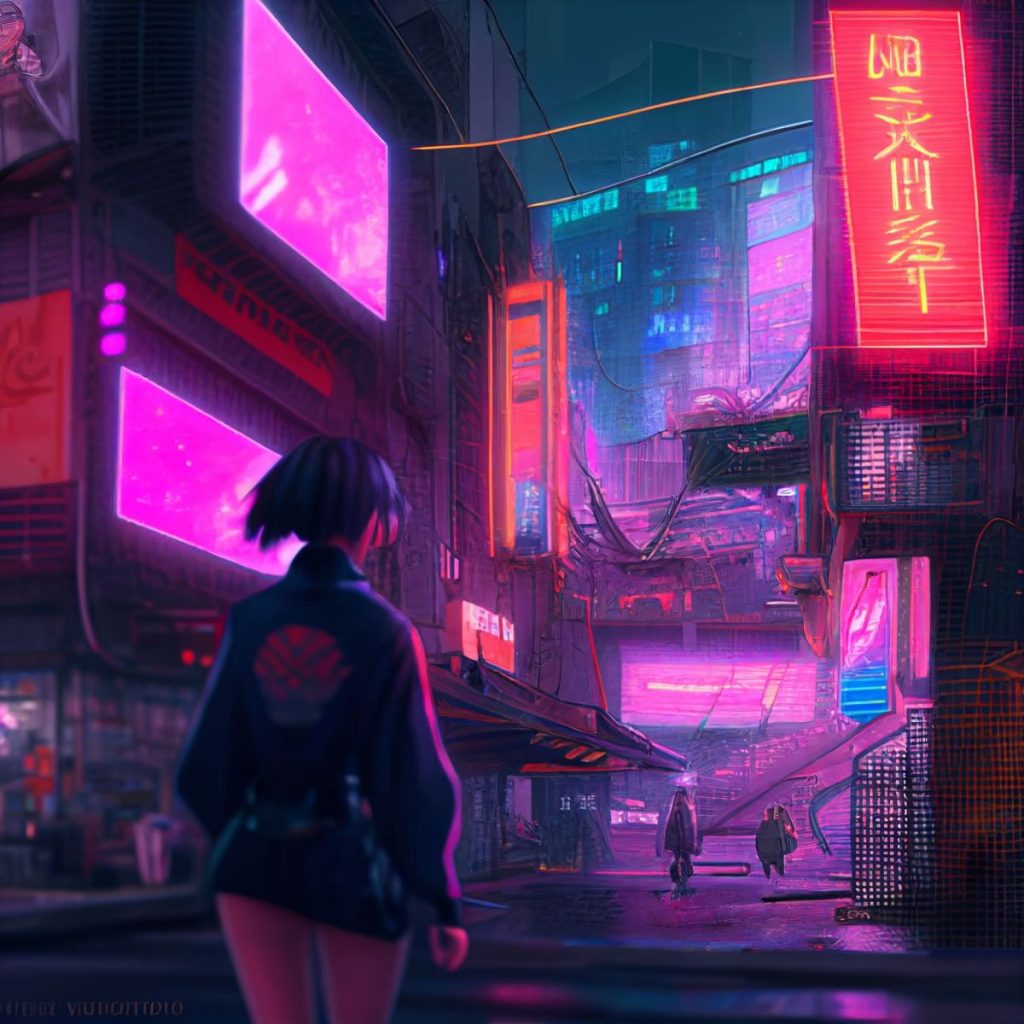How does metaverse drive the gaming sector

In Brief
In the metaverse, gamers will have more than just a spectator’s role
Metaverse – the next big thing in immersive entertainment – has big market for video games
Avatars will transform how gamers interact with each other in the metaverse
Video games are growing more lifelike as technology advances, and players are looking for more than a spectator’s role. Players want to be given agency in the game world so they can produce their own content and interact with other players. The metaverse gives them this chance.
The metaverse will have a significant impact on the video game and film industries. People can do more than just play video games and watch VR films in the metaverse. In “Ready Player One,” the main character enters “The Oasis,” a virtual environment where he can do anything he wants. In the same way, users of the metaverse will enter a variety of virtual worlds and engage in social activities with other players. In “Roblox,” for instance, gamers can already make their own games and interact with one another.
As metaverse technology improves, gamers will be able to design more intricate and lifelike virtual environments. They can go to the movie world and experience it as if they were there.

The meaning of the term “metaverse”
As a broader concept, it encompasses virtual reality, wherein the virtual environment exists even when you aren’t interacting with it (think of Fortnite). Included in this category is augmented reality, which merges the virtual and real worlds, as in the once-trendy mobile game Pokemon Go.
In brief, the metaverse is the idea of a multiverse of virtual worlds existing in a shared 3D environment on the internet. It’s been called “the next Internet” by many. In these carefully crafted virtual worlds, users of the metaverse ecosystem can collaborate on projects, hold meetings, organize group activities, have fun, and make new friends.
Explain gaming in the metaverse
Metaverse’s 3D environment presents a big market for video games. The gaming business is one of the most prominent parts of the metaverse, thanks in large part to the handshake between the metaverse and the gaming industry. The gamers may really get into the game.


They’ve progressed past the stage of relying just on a flat screen and can now adjust to their physical surroundings. Together, we can create a future where learning, socializing, working, earning money, and even going to concerts are all possible in a completely digital format. With the advent of the metaverse and the consequent growth of the external world, it is now much simpler for individuals to participate in online conferences, listen to virtual concerts, and play online games.
To what extent does the metaverse drive the gaming industry into the future?
The ability of the metaverse to serve as a virtual location for a wide variety of activities, from Web3 and cryptocurrency mining to team meetings and immersive gaming, is a significant part of the metaverse’s appeal. Simply said, consumers can obtain a lifelike experience that is consistent with how they feel in the actual world since the metaverse uses technologies like augmented reality and virtual reality to produce a more organic encounter.
Conversations about how the metaverse game development platform can shape the future of gaming are in their infancy. It’s only a matter of time before the next big thing in gaming arrives, what with all the ongoing research and development and projects like Decentraland and Axie Infinity that are already hard at work on the games of the future.
What does gaming look like in the metaverse?
As discussed previously, the metaverse is an online arena that utilizes both augmented reality (AR) and virtual reality (VR) in which users can interact with each other and the digital world through enhanced human-computer interface (HCI) gear and software. While the metaverse provides the features, the gaming industry is one of the primary industries that use the metaverse capabilities to provide consumers with a next-generation gaming experience.

In the competitive gaming realm, players can now engage in ways that were before impossible. Moreover, the combination of the metaverse with gaming provides an immersive experience that boosts their entire gaming experience.
SOCIAL GAMING
The social nature of the metaverse is a given. It is one of the most distinguishing characteristics compared to the traditional VR experience, where players play alone. Gamers will be able to invite several friends from the real world, communicate with other players from around the world, form relationships, and so much more!
GAMES-AS-PLATFORMS
The games-as-platforms provide consumers with a superior gaming experience. Alongside experience comes adaptability. Here, players can add to the virtual world, create their own material, and even create minigames within a game, among other things. Essentially, if they wish to engage in additional activities, gamers can utilize the gaming environment as a platform-like space.
MIXED-REALITY EXPERIENCE
The metaverse’s blend of augmented reality and virtual reality gives consumers a far more natural experience. The blended AR and VR activities in the metaverse offer the incorporation of mixed reality, allowing gamers to seamlessly transition from augmented reality group chat to a mixed reality board game to a full-fledged virtual reality world.
MOBILE GAME RESOURCES
With its interoperability architecture, the metaverse could facilitate the portability of assets. In this context, assets refer to the many weapons, weapon skins, and other items used by players. Weapons or avatar modifications acquired in one game could be transferred to a different environment, with the NFT laws dictating ownership of these items in perpetuity.
PLAY TO EARN
Play to win is a prominent aspect of gaming in the metaverse. In addition to following a linear narrative and set of rules, players can engage in a variety of profitable activities, such as selling their assets or assets they have won in a play-to-win game to other users in return for cryptocurrency.
The new virtual environment modifies online gaming communities
Avatars, which can be altered to resemble anything, will represent individuals. Gamers can get together with their pals to play video games. In addition, they will be able to visit virtual worlds established by other gamers. This will alter our perception of online gaming communities. Instead of being alone in our individual homes, we will engage with other gamers in a shared virtual world.

Additionally, the metaverse will have a significant impact on e-sports. E-sports are already immensely popular, with millions of people around the globe watching and participating in competitive video gaming. E-sports will be taken to a whole new level in the metaverse.
Players can play in virtual venues while viewers from across the globe watch. E-sports will be more immersive and thrilling than ever before due to the metaverse.
Conclusion
Although the metaverse development is still in its infancy, it has the potential to revolutionize how we interact with technology. It serves not only the gaming industry but also numerous other areas, such as employment, trading, game streaming, legal process regulation, and video conferencing. With the metaverse, gamers have the opportunity to compete in an entirely immersive setting.
Read more:
Disclaimer
In line with the Trust Project guidelines, please note that the information provided on this page is not intended to be and should not be interpreted as legal, tax, investment, financial, or any other form of advice. It is important to only invest what you can afford to lose and to seek independent financial advice if you have any doubts. For further information, we suggest referring to the terms and conditions as well as the help and support pages provided by the issuer or advertiser. MetaversePost is committed to accurate, unbiased reporting, but market conditions are subject to change without notice.
About The Author
Damir is the team leader, product manager, and editor at Metaverse Post, covering topics such as AI/ML, AGI, LLMs, Metaverse, and Web3-related fields. His articles attract a massive audience of over a million users every month. He appears to be an expert with 10 years of experience in SEO and digital marketing. Damir has been mentioned in Mashable, Wired, Cointelegraph, The New Yorker, Inside.com, Entrepreneur, BeInCrypto, and other publications. He travels between the UAE, Turkey, Russia, and the CIS as a digital nomad. Damir earned a bachelor's degree in physics, which he believes has given him the critical thinking skills needed to be successful in the ever-changing landscape of the internet.
More articles

Damir is the team leader, product manager, and editor at Metaverse Post, covering topics such as AI/ML, AGI, LLMs, Metaverse, and Web3-related fields. His articles attract a massive audience of over a million users every month. He appears to be an expert with 10 years of experience in SEO and digital marketing. Damir has been mentioned in Mashable, Wired, Cointelegraph, The New Yorker, Inside.com, Entrepreneur, BeInCrypto, and other publications. He travels between the UAE, Turkey, Russia, and the CIS as a digital nomad. Damir earned a bachelor's degree in physics, which he believes has given him the critical thinking skills needed to be successful in the ever-changing landscape of the internet.



















































